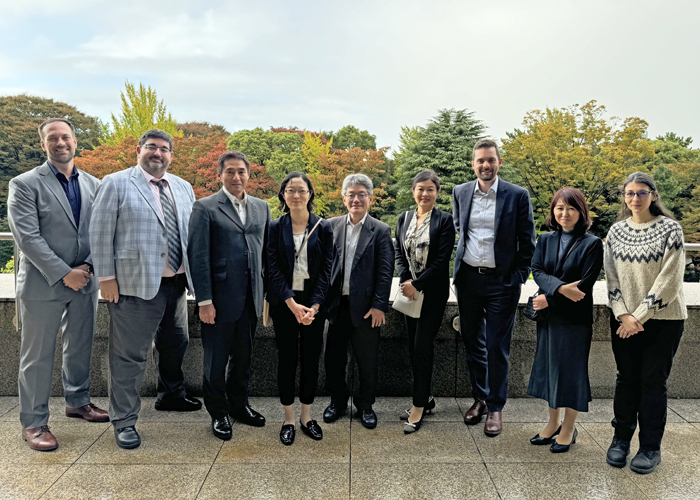JICUF Co-Hosts a Workshop on Skills-Based Pathways for Refugees at the Embassy of Canada to Japan

On November 20 and 21, JICUF co-hosted a workshop titled “Skills-Based Pathways for Refugees: Challenges and Solutions for Long-Term Integration” at the Embassy of Canada to Japan. Together with the Embassy and Pathways Japan, JICUF shed light on programs in Japan that offer pathways for refugees to relocate to Japan from their first countries of asylum through educational or professional opportunities. Skills-based pathways refer to both education and labor mobility pathways for refugees, which complement resettlement efforts by governments. At the Second Global Refugee Forum in December 2023, the Labor Mobility Task Force and Education Pathways Task Force, the latter of which JICUF is a member, submitted a joint pledge to expand skills-based pathways with a goal to admit 200,000 refugees to third countries in the next five years.
The planning process for this workshop began in February, after the Canadian Embassy expressed an interest in gathering interested actors to discuss how education and labor mobility pathways can be established and expanded in Japan and elsewhere. Close to 70 representatives of governments, corporations, international organizations, NGOs, and higher education institutions, as well as refugee representatives attended the two-day workshop. A quarter of the participants were international guests from Australia, Canada, the Philippines, South Korea and others. Convening this type of gathering in Asia to expand education pathways is one of the pillars of the pledge that JICUF made at the Global Refugee Forum. While the main focus of this particular workshop was employment, it was relevant to JICUF, as education pathways would not be complete without refugees being able to find meaningful work after graduation and become independent members of society.
Four main initiatives were identified in Japan, namely the Japan International Cooperation Agency (JICA)’s JISR (Japanese Initiative for the Future of Syrian Refugees) and PEACE (Project for the Promotion and Enhancement of the Afghan Capacity for Effective Development) programs, Pathways Japan and JICUF’s language school and university pathways programs and their transition to employment, Kowa and Humanitarian Innovation Group’s Aichi program, and Toyota and Talent Beyond Boundaries’ training program for immigrants and refugees. Representatives gave an overview of each of these four programs. Despite the increasingly severe labor shortage in Japan, obstacles faced by both refugees and employers include insufficient Japanese language education and the lack of understanding and preparedness of employers to hire and utilize talented refugees.

On Day 2, Participants had a chance to learn about international efforts to expand skills-based pathways including the Economic Mobility Pathways Pilot (EMPP) by the Canadian Government, Deakin University’s Centre for Refugee Employment, Advocacy, Training and Education (CREATE) program in Australia, and Talent Beyond Boundaries’ Talent Catalog and matching efforts with employers.
One of the most memorable sessions was “Refugee Experiences,” in which four refugee representatives shared their distinctive journeys and made policy recommendations. The four speakers came from Myanmar, Ukraine, Syria and Afghanistan. Recommendations included strengthening psychosocial support and employment support, refugee involvement in the planning process, and providing secure housing.
The two days fostered new friendships and solidified existing ones, leading to new ideas for collaboration in the future. We would like to thank the Embassy of Canada and Pathways Japan for working closely with us to host this timely event, and to all guests who participated with a passion to support refugees in Japan and beyond.




